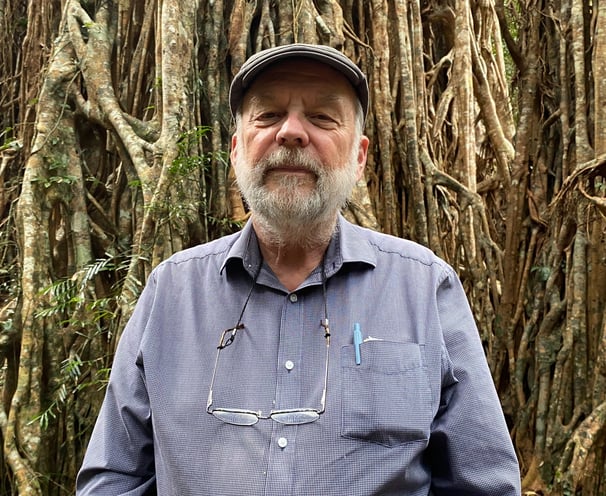
KEY PERSONNEL
MEET OUR SRI-ORA
PROJECT LEADER:
TIM MARSHALL
Tim has been a leader in organic agriculture and certification in Australia for 45 years and a significant contributor to organic standards and certification in worldwide forums.


Tim is also a co-founder of Australia’s first organic certifier NASAA in 1986, the first Organic Guarantee Systems Coordinator for the world peak body in organics IFOAM in 2001, and the main author of numerous certification standards and guidebooks. He was Deputy Chair of Organic Federation of Australia Board for most of the 2000 decade.
Tim has visited more than 5,500 organic farms (or farms in conversion to organic) in Australia and 33 other countries.Tim Marshall founded TM Organics Pty Ltd in 2006. TM Organics was the main organic consulting and training company in the Asia-Pacific region. TM Organics is now closed, and Tim operates as a sole trader doing very similar work.
Tim is the author of 4 solo books, co-author of another, has contributed chapters to many others (see below) and has written more than 20 training manuals and more than 3,500 newspaper and magazine articles. Tim has also helped hundreds of farmers in Samoa, New Guinea, Vietnam, and Thailand to convert to organic.
Tim has worked with some of the largest agriculture enterprises in Australia, including the largest producers of wine grapes, apples, mangoes, avocados, and very large producers of wool, beef, and nuts. In Asia Tim has worked with large cooperatives consisting of hundreds of small-scale coffee, tea, cocoa, coconut, and spice producers.
TM Organics:
TM Organics provided formal conversion training for approximately 450 producers and consulting advice for about another 75 (in Australia). This included Australia’s largest organic training program, Business Systems for Transition to Organic (BSTO). BSTO was funded by AusIndustry and other courses were funded by FarmBis and FarmReady. About 30 percent of the producers TM Organics assisted are in the viticulture industry. The rest cover a full spectrum of industries: beef, sheep, dairy, poultry, grain, and annual and perennial horticulture. At least 65% of these producers have achieved certification as organic or biodynamic producers, representing about 450,000 hectares.
TM Organics clients included the largest organic grain and dairy producers in Australia and the largest area of contiguous organic cropland in the world. TM organics has helped many businesses to become certified and to offer the following services to the organic (and non-organic) growers and food handlers: food processing technology, GPS systems, sanitisers, compost manufacturers, organic and biological fertilisers, organic pesticides, fungicides and herbicides, water treatment systems, organic and herbal medicines, and cosmetics.
Non-organic experience:
Tim has significant experience in leading catchment management programs for local government, especially in the Mount Lofty Ranges Catchment Management Program, where he coordinated the work of 12 local governments.
He has also been involved with large scale revegetation projects such as the Regreen The Range project at Willunga, SA. Tim has provided environmental training for roadside management workers (local government, highways, and railway workers).
Current Positions and Previous Qualifications:
Current Chair (1920 to present) of NASAA https://nasaaorganic.org.au
Chair, Organic Trust Australia – Research and Education (OTARE) http://organictrustaustralia.org.au
Co-founder and immediate past Chair of the Organic Consumers Association of Australia https://www.facebook.com/OrganicConsumersAssociationofAustralia and http://organic-consumers.com.au
Board member, Organic Industries Australia https://organictrustaustralia.org.au
Board member, Soil and Health Library https://soilandhealth.org
Recent member, National Organic Standards Committee
Writer and founder, Acres Australia: The Journal of Sustainable Agriculture
Member, Rural Media and Communicators Association of SA https://www.ruralmediasa.com
Member, IFOAM https://www.ifoam.bio
PhD student, University of New England: topic of Governance of organic standards and certification in Australia.
Previous qualifications:
BA, Flinders University
Grad Dip Environmental Studies, Adelaide University
Publications and Books:
Publications (a selection of)Refereed Journal articles
Marshall, T. (2017). Why are Genetic Modification and Organic incompatible, Farm Policy Journal, Vol 14 No 2 Winter 2017.
Books
Doube, B. and Marshall, T. (2014). Dung Down Under, Dung Beetle Solutions Australia.
Marshall. T. (2011). The New Organic Gardener, Harper Collins, Sydney, Australia.
Leu, A., Cooper, P., Nott, A., Adamson, A., Marshall, T., 2010. Improving the Capacity of Organic Producers to Manage Climate Change, Organic Federation of Australia (last author as project manager).
Marshall, T. (2010). Weed: The Ultimate Gardener’s Guide to Organic Weed Control, Harper Collins.
Marshall, T. (2010). Bug: The Ultimate Gardener’s Guide to Organic Pest Control, Harper Collins.
Marshall, T. (2008). Composting: The Ultimate Organic Guide to Recycling Your Garden, Harper Collins.
Book Chapters in about 30 publications including industry and academic books, such as Furness, B. (ed), 2002. Good grub: food for healthy people and a healthy planet. Nature and Society Forum, Horsley, P. ed. (2000). The Organic Alternative: The complete guide to organic farming, The Kondinin Group, and Blazey, C. and Varkuvevicius, J. (eds), The Australian Fruit and Vegetable Garden, Diggers Club.
Consultant and project manager for numerous publications such as Dumaresq, D., Greene, R. and van Kerkhoff, L., 1996 Organic Agriculture in Australia RIRDC Publication No.97/14 and Scialabba, N., and Hattam, C. (2002). Organic agriculture, environment and food security, FAO, Rome.
Organic Standards and certification documents include national and international, private and government organic standards including the IFOAM Norms (major private international standard), the NASAA Organic Standard (private national standard), and significant contributions to the AS6000 Organic and Biodynamic Produce – a private national standard, and The National Standard for Organic and Biodynamic Produce (government national standard used to regulate exports) and Contributions to others such as the Australian Certified Organic Standard, and the first NASAA Inspectors Guidebook.
Training Manuals (evaluated for use in government-supported programs):
Marshall, T. (2004). Organic Greenhouse Management, Virginia Horticulture Centre, funded by the Department of Education, Science and Training.
Marshall, T. and Adamson, D. (2006). Organic Grain – is it for you? Workbook, TM Organics P/L (supported by The FarmBis Program, Department of Agriculture, Fisheries and Forestry).
Marshall, T. and Adamson, D. (2006). Organic Viticulture – is it for you? Workbook, TM Organics P/L (supported by The FarmReady Program).
Marshall, T. and Adamson, D. (2008). Organic Wool – is it for you? Workbook, TM Organics P/L (supported by The FarmReady Program).
Marshall, T. and Adamson, D. (2009). Business Support for Transition to Organic: Workbook, TM Organics P/L (The BSTO was supported by the AusIndustry Small Business Enterprise Program, enrolled 131 participants in SA, NSW and Victoria, being the largest conversion to organic program and 65% of participants applied for organic certification).
Marshall, T. and Adamson, D. (2011). Reaching the Organic Market. TM Organics P/L.
Marshall, T. and Adamson, D. (2012). Using Biological Inputs: Workbook, TM Organics P/L (supported by the Australian Government agency Enterprise Connect).
Marshall, T. (2017). Understanding Biological Inputs: Workbook, Australian Organic Recycling Association (supported by the Adelaide and Mt Lofty NRM Board).


